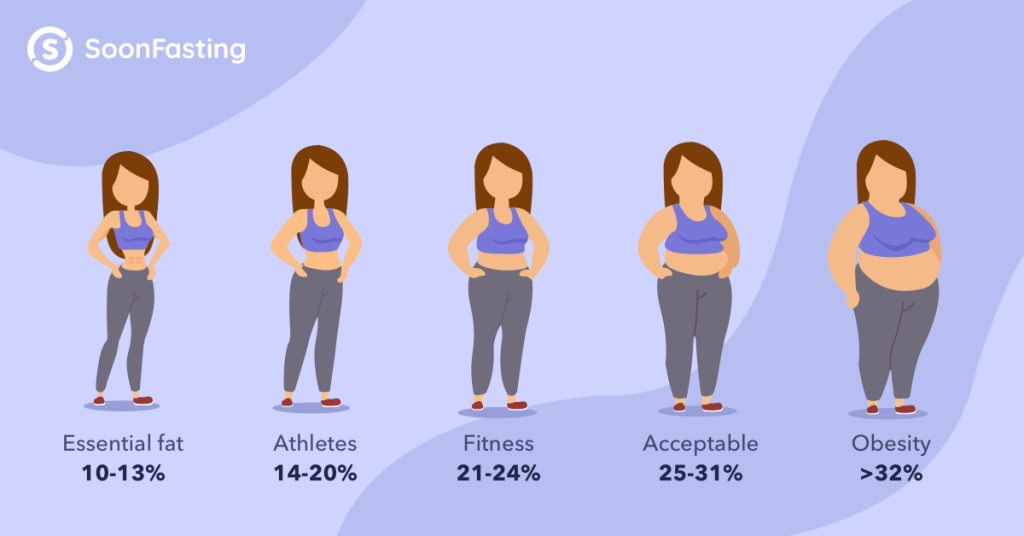Endomorphs have a body type that is distinguished by a predisposition to retain fat and a slower metabolism (Wanna boost metabolism? Try these foods). While genetics certainly influence body composition, it’s important to note that losing weight as an endomorph is entirely possible with the right schedule. This article explains how endomorphs might lose weight while continuing to acknowledge their unique genetic makeup.

Understanding the Endomorph Body Type
Endomorphs have specific traits that can influence weight loss efforts:
Higher Body Fat Percentage
Endomorphs naturally have a higher body fat percentage due to their body’s inclination to store energy as fat.
The normal range for body fat percentage can vary based on factors such as age, sex, and individual variations. However, a rough guideline for healthy body fat percentage in adults is:
- For men: 10-20% body fat
- For women: 20-30% body fat
These ranges are not rigid and can still be considered healthy within a slightly broader range. It’s important to note that body fat percentage doesn’t directly correlate with BMI (Body Mass Index), which is a measure of body weight relative to height and is used to categorize individuals into different weight categories (underweight, normal weight, overweight, obese).
Slower Metabolism
Their metabolism may be slower, making it more challenging to burn calories efficiently.
Muscle Gain Potential
Endomorphs have a tendency to gain muscle mass, which might help them shape their bodies.
Effective Weight Loss Strategies for Endomorphs
Balanced Nutrition
Focus on a well-balanced diet rich in lean proteins, complex carbohydrates, healthy fats, and vegetables. Remember to choose diets rich in nutrients that offer energy and aid in muscle regeneration.
Calorie Control
Since endomorphs tend to have a slower metabolism, calorie restriction counts a lot. For promoting weight loss, they should create a moderate calorie deficit.
Portion Management
Be mindful of portion sizes to prevent overeating and promote a calorie deficit.
Meal Frequency
Opt for regular, smaller meals throughout the day to support steady energy levels and control hunger.
Protein Intake
Consume adequate protein to support muscle preservation and aid in the feeling of fullness.
Complex Carbohydrates
Choose complex carbohydrates like whole grains, legumes, and vegetables for sustained energy and improved metabolism.
Healthy Fats
In order to improve satiety and overall health, include sources of healthy fats such as avocados, nuts, seeds, and olive oil.
Strength Training
Engage in regular strength training to build and preserve muscle mass. More muscle can help boost metabolism.
Cardiovascular Exercise
Include cardiovascular workouts to enhance fat burning and improve cardiovascular health.
Mindset and Long-Term Success
Patience and Persistence
Understand that weight loss as an endomorph may take time. Be patient and stay consistent with your efforts.
Celebrate Non-Scale Victories
Focus on non-scale achievements such as increased energy, improved fitness levels, and clothing fit.
Rest and Recovery
Prioritize adequate sleep to support muscle recovery, regulate hormones, and optimize weight loss.
Professional Guidance
Consult a registered dietitian or fitness professional for personalized advice tailored to your endomorph body type.
Conclusion
Weight loss as an endomorph necessitates an individualized approach that takes into account your specific genetic composition. Endomorphs can lose weight successfully while still keeping its their bodies’ natural tendencies if they practice balanced nutrition, portion control, strength training, and keep a happy attitude. Remember that long-term weight loss is a process that should emphasize health, self-acceptance, and overall well-being.